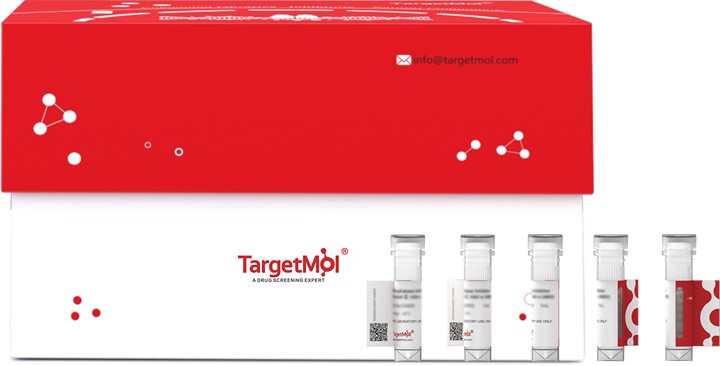Shopping Cart
Remove All Your shopping cart is currently empty
Your shopping cart is currently empty
GDNF Protein, Mouse, Recombinant is expressed in CHO Cells. The accession number is P48540.

| Pack Size | Price | USA Warehouse | Global Warehouse | Quantity |
|---|---|---|---|---|
| 5 μg | $138 | - | In Stock | |
| 10 μg | $216 | - | In Stock | |
| 25 μg | $396 | 7-10 days | 7-10 days |
| Biological Activity | ED 50 < 8.0 μg/ml, measured in a bioassay using C6 cells. |
| Description | GDNF Protein, Mouse, Recombinant is expressed in CHO Cells. The accession number is P48540. |
| Species | Mouse |
| Expression System | CHO Cells |
| Tag | Tag Free |
| Accession Number | P48540 |
| Synonyms | HSCR3,HFB1-GDNF,Glial-Derived Neurotrophic Facto,ATF2,ATF-1 |
| Construction | Met77-Ile211 |
| Protein Purity | > 95% as determined by SDS-PAGE; > 95% as determined by HPLC |
| Molecular Weight | 17~22 kDa (Reducing conditions) |
| Endotoxin | < 0.2 EU/μg of protein as determined by the LAL method. |
| Formulation | Lyophilized from a 0.2 μm filtered solution in PBS. |
| Reconstitution | Reconstitute the lyophilized protein in sterile deionized water. The product concentration should not be less than 100 μg/ml. Before opening, centrifuge the tube to collect powder at the bottom. After adding the reconstitution buffer, avoid vortexing or pipetting for mixing. |
| Stability & Storage | Upon receiving, this product remains stable for up to 6 months at lower than -70°C. Upon reconstitution, the product should be stable for up to 1 week at 4°C or up to 3 months at -20°C. For long term storage it is recommended that a carrier protein (example 0.1% BSA) be added. Avoid repeated freeze-thaw cycles. |
| Shipping | In general, lyophilized powders are shipped with blue ice, while solutions are shipped with dry ice. |
| Research Background | Glial-Derived Neurotrophic Factor, also known as GDNF and ATF-1, is a neurotrophic factor belonging to the TGF-beta family. It is expressed in both central nervous system (CNS) and non-CNS tissues. GDNF signals through a receptor system composed of a RET and one of the four GFR alpha receptors. It promotes the survival and differentiation of dopaminergic neurons, and increases their high-affinity dopamine uptake. In a mouse Parkinson’s Disease model, GDNF has been shown to improve bradykinesia, rigidity, and postural instability. GDNF has also been shown to regulate kidney development, spermatogenesis and affect alcohol consumption. |
| Size | Quantity | Unit Price | Amount | Operation |
|---|

Copyright © 2015-2026 TargetMol Chemicals Inc. All Rights Reserved.